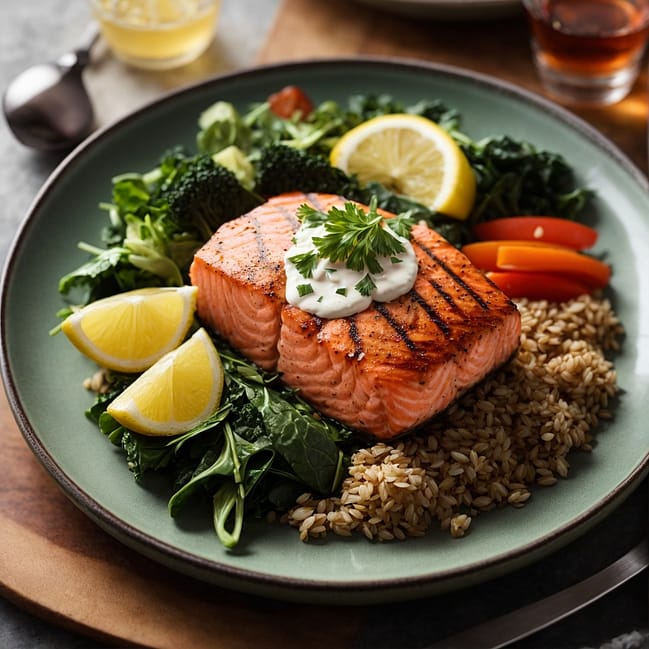Understanding The Difference: Weight Loss vs Fat Loss - Which One To Focus On?

Some people want it to happen. Some wish it would happen. Others make it happen.
Michael Jordan
Weight loss and fat loss are often used interchangeably, but they have different effects on the body and health. Weight loss refers to a reduction in overall body weight, which can be achieved by losing water, muscle, and fat. On the other hand, fat loss specifically targets excess fat in the body.
While weight loss may result in a decrease in body fat, it can also lead to the loss of muscle mass and water weight. Understanding the difference between weight loss and fat loss is crucial for achieving long-term, sustainable results and maintaining a healthy body composition.
Key Takeaways
- Healthy weight loss focuses on fat loss rather than just overall weight loss.
- Excess body fat is strongly associated with chronic diseases such as diabetes and heart disease.
- Accurate measurement of body fat is essential for tracking fat loss progress.
- Lean body mass plays a crucial role in fat loss and maintaining a healthy metabolism.
- Sustainable fat loss requires a comprehensive approach that includes nutrition, exercise, and lifestyle modifications.
The Importance Of Fat Loss For Health And Well-Being
Excess body fat, particularly storage fat, is strongly associated with chronic diseases such as type 2 diabetes, high blood pressure, heart disease and cancer. Losing fat can significantly reduce the risk of these diseases and improve both physical and mental well-being. Focusing on fat loss, rather than just weight loss, encourages people to make lifestyle changes that include regular exercise and a balanced diet, leading to better overall health outcomes.
Research has shown that reducing body fat can have a profound impact on overall health. Excess fat contributes to inflammation in the body, which is a key factor in the development of chronic diseases. By targeting fat loss, individuals can not only improve their physical health but also reduce their risk of developing these serious conditions.
Mental health is also closely linked to body fat levels. Studies have found that higher levels of body fat are associated with an increased risk of depression and anxiety. By prioritising fat loss, individuals can improve their mental well-being and enhance their overall quality of life.
The Role Of Fat Loss In Disease Prevention
According to the World Health Organization, obesity is a leading risk factor for numerous chronic conditions, including cardiovascular disease, type 2 diabetes, and certain types of cancer. By focusing on fat loss, individuals can reduce their chances of developing these diseases and improve their overall well-being.
| Disease | Risk Reduction With Fat Loss |
|---|---|
| Cardiovascular Disease | Lowering body fat decreases the risk of high blood pressure, cholesterol, and heart attacks. |
| Type 2 Diabetes | Fat loss improves insulin sensitivity and reduces the risk of developing diabetes. |
| Cancer | Excess body fat is associated with increased risks of certain cancers, including breast, colon, and liver cancer. Fat loss lowers the risk of developing these types of cancer. |
By understanding the importance of fat loss for health and well-being, individuals can make informed choices to prioritise fat loss over simply losing weight. Adopting a lifestyle that supports fat loss through regular exercise, a balanced diet, and healthy habits can lead to significant improvements in overall health and reduce the risk of chronic diseases.
Do This Everyday To Lose Weight
The frst episode of the month's programme! I noticed from the last before/after results video that a lot of people tend to only do 1-2 weeks instead of the full 4-week programmes.
Understanding Body Composition And Measuring Fat Loss
Body composition plays a crucial role in determining overall health and fitness. Understanding the distribution of body fat, lean body mass, and body water is essential for effectively managing fat loss and achieving optimal results. To accurately track fat loss progress, it is important to utilise reliable methods for measuring body fat.
Measuring Body Fat Percentage
One of the most common ways to measure body fat is to use a body fat monitor. These scales use bioelectrical impedance to estimate body composition, based on the principle that fat conducts less electrical current than muscle. However, it is important to note that these scales may not give the most accurate readings as factors such as hydration levels can affect the results.
Another method for measuring body fat is by using callipers. They are used to measure skinfold thickness at various sites on the body, which is then used to estimate body fat percentage. While this method can provide more precise measurements, it requires proper technique and training to ensure accuracy.
Join Our Mailing List
Sign up to get your free PDF report on 10 Actions That Support Weight Loss sent to your inbox!
Other Measurement Methods
In addition to body fat scales and callipers, there are other methods for measuring body fat, including tape measure, body mass index (BMI), and waist-to-hip ratio. Tape measure measurements involve calculating the circumference of specific body parts, such as the waist, hips, and thighs, to estimate body fat percentage.
BMI is a widely used metric that calculates body fat based on height and weight. However, it is important to note that BMI does not directly measure body fat and may not be accurate for individuals with high muscle mass.
The waist-to-hip ratio is another measurement method that assesses body fat distribution. This ratio compares the circumference of the waist to the circumference of the hips, with higher values indicating a higher percentage of abdominal fat.
| Measurement Method | Pros | Cons |
|---|---|---|
| Body Fat Scales | Convenient to use at home | Potential for inaccurate readings |
| Calipers | Greater accuracy compared to scales | Requires proper technique and training |
| Tape Measure | Simple and cost-effective | Estimates may vary based on the formula used |
| BMI | Widely used and easily calculated | Does not directly measure body fat |
| Waist-to-Hip Ratio | Assesses abdominal fat distribution | Does not provide an exact body fat percentage |
When measuring body fat, it is important to remember that no single method provides absolute accuracy. However, by using a combination of measurement methods and tracking changes over time, individuals can gain a better understanding of their body composition and progress towards their fat loss goals.
It is also important to note that body composition is only one aspect of overall health and that focusing solely on fat loss may not be the most optimal approach. Creating a comprehensive plan that includes a balanced diet, regular exercise and lifestyle changes is key to achieving sustainable fat loss and maintaining a healthy body composition.

The Role Of Lean Body Mass In Fat Loss
Understanding the role of lean body mass is crucial to achieving effective fat loss. Lean body mass, which includes muscle mass, plays an important role in boosting metabolism, increasing energy expenditure and supporting long-term fat loss. Unlike fat, muscle is metabolically active and requires more energy to maintain and function, contributing to a higher basal metabolic rate (BMR). As a result, people with a higher proportion of lean body mass tend to burn more calories at rest and during exercise.
One of the most effective ways to build and maintain lean body mass is through resistance and strength training. These exercises stimulate muscle growth and help prevent muscle loss during a calorie deficit, which is often required for fat loss. Resistance training exercises, such as weightlifting or bodyweight exercises, target specific muscle groups and help promote muscle hypertrophy. Strength training, on the other hand, focuses on improving overall strength and power, benefiting both muscle growth and fat loss.
In addition to resistance and strength training, adequate protein intake is essential to support muscle maintenance during fat loss. Protein provides the building blocks for muscle repair and growth. Including lean protein sources such as poultry, fish, tofu and legumes in each meal can help individuals meet their protein needs and optimise muscle maintenance during a calorie deficit.
Join Our Mailing List
Are you ready to get in shape? Join us and get the list of top 10 actions that support PERMANENT weight loss and make you look and feel better without being hungry in the process!
Muscle Retention Strategies For Fat Loss:
- Incorporate resistance training and strength training exercises into your workout routine.
- Focus on progressive overload to continuously challenge your muscles and stimulate growth.
- Consume an adequate amount of protein to support muscle repair and growth.
- Ensure you are in a moderate calorie deficit to promote fat loss while minimising muscle loss.
- Monitor your progress regularly with body composition assessments to track changes in lean body mass.
| Lean Body Mass | Fat Loss | Muscle Retention |
|---|---|---|
| Increases metabolism | Reduces overall body fat | Preserves muscle mass |
| Boosts energy expenditure | Improves body composition | Enhances physical performance |
| Supports long-term fat loss | Reduces the risk of chronic diseases | Improves metabolic health |

The Negative Effects Of Rapid Weight Loss On Lean Body Mass And Metabolism
Rapid weight loss, such as that seen on extreme diets or reality shows like The Biggest Loser, can have detrimental effects on lean body mass and metabolism. While rapid weight loss may result in significant overall weight reduction, it often leads to the loss of both fat and muscle mass. This muscle loss can have long-term consequences for the body.
Lean body mass, which includes muscle mass, plays a crucial role in maintaining a healthy metabolism. Muscle tissue is metabolically active, meaning it burns more calories at rest compared to fat tissue. When muscle mass is lost during rapid weight loss, the body's overall energy expenditure decreases, making it more difficult to maintain weight loss in the long term.
Furthermore, rapid weight loss can lead to a decrease in BMR - the number of calories the body needs to perform basic functions at rest. When BMR decreases, fewer calories are burned throughout the day, even during periods of physical activity. This can contribute to weight regain and the difficulty of sustaining long-term weight maintenance.
| Effect Of Rapid Weight Loss | Consequence |
|---|---|
| Loss of lean body mass | Decreased metabolism and increased difficulty in maintaining weight loss |
| Decreased basal metabolic rate | Reduced calorie burn throughout the day |
| Muscle loss | Decreased strength and functional capacity |
It is important to prioritise the preservation of lean body mass during weight loss efforts. This can be achieved by adopting a more moderate and sustainable approach that incorporates both exercise and adequate nutrition. Combining a balanced caloric deficit with regular strength training can help minimise muscle loss and support long-term weight maintenance.
See How Easily You Can Get Fitter.
Free & Instant Report Download
Strategies For Optimal Fat Loss And Muscle Retention
When it comes to achieving optimal fat loss while maintaining muscle mass, it's important to adopt evidence-based strategies that promote long-term success. Here are some key strategies to consider:
- Caloric Deficit: Creating a moderate caloric deficit is essential for fat loss. This means consuming fewer calories than you burn, but it's important to strike a balance to ensure sustainable progress.
- Strength Training and Resistance Training: Incorporating regular strength and resistance training exercises into your routine is crucial for muscle retention. These types of exercises help preserve lean body mass while promoting fat loss.
- High-Protein Diet: Consuming a diet that is high in protein can support muscle retention during fat loss. Protein provides the building blocks for muscle repair and growth, and it also helps you feel fuller for longer, reducing cravings and overeating.
- Comprehensive Approach: Taking a comprehensive approach that combines nutrition, exercise, and lifestyle modifications is key to sustainable fat loss. This involves adopting healthy eating habits, managing stress levels, getting enough sleep, and staying consistent with your fitness routine.
By incorporating these evidence-based strategies into your fat loss journey, you can maximise your results and achieve your long-term weight management goals. Remember, everyone's journey is unique, so it's essential to find an approach that works best for you and your body.
The Benefits Of Strength Training And Resistance Training
Strength training and resistance training are especially important for muscle retention during fat loss. These types of exercises help stimulate muscle growth, boost metabolism, and improve overall strength and fitness. Here are some key benefits:
- Preserve lean body mass: When you're in a caloric deficit, your body may break down muscle tissue for energy. However, incorporating strength training and resistance training into your routine helps signal to your body that you need to preserve muscle mass.
- Increases metabolism: Muscle is more metabolically active than fat, meaning it burns more calories at rest. By increasing your muscle mass through strength training and resistance training, you can boost your metabolism and enhance your body's calorie-burning potential.
- Improves body composition: Building and maintaining lean muscle mass contributes to a more toned and defined physique. Strength training and resistance training can help sculpt your body by targeting specific muscle groups and improving overall body composition.

An Example Of A High-Protein Meal Plan
Here's a sample high-protein meal plan that can support fat loss and muscle retention:
| Meal | Protein Source |
|---|---|
| Breakfast | Scrambled eggs with spinach |
| Snack | Greek yoghurt with berries |
| Lunch | Grilled chicken breast with quinoa and roasted vegetables |
| Snack | Protein shake with almond milk |
| Dinner | Salmon with brown rice and steamed broccoli |
| Snack | Cottage cheese with sliced almonds |
Remember to personalise this meal plan according to your dietary preferences and goals. It's also important to consult with a healthcare professional or registered dietitian before making any significant changes to your diet or exercise routine.
Tracking Progress And Maintaining Fat Loss
Monitoring your progress is crucial to maintaining fat loss and achieving long-term weight management goals. Regular body composition assessments and measurements provide valuable information about the effectiveness of your fat loss strategies. By tracking changes in body fat percentage and other relevant metrics, you can make informed decisions and adjust your approach as needed.
Goal setting is an important aspect of tracking progress. By setting realistic and achievable goals, you can stay motivated and focused on your fat loss journey. Whether it's aiming for a specific body fat percentage or fitting into a certain clothing size, having clear goals helps you stay on track and measure your progress along the way.
In addition to tracking physical changes, it's essential to incorporate healthy habits and sustainable lifestyle changes. These include maintaining a balanced diet, being consistent with exercise, managing stress levels, and prioritising sleep. By making these positive changes part of your daily routine, you create a foundation for long-term success in maintaining fat loss and overall well-being.
| Tracking Progress Tips | Benefits |
|---|---|
| Regular body composition assessments | Identify changes in body fat percentage and overall composition |
| Setting realistic goals | Stay motivated and focused on your fat loss journey |
| Developing healthy habits | Support long-term fat loss and overall well-being |
Remember, maintaining fat loss is an ongoing process that requires dedication and consistency. By tracking your progress, setting goals, and adopting healthy habits, you can achieve sustainable results and enjoy a healthier lifestyle in the long run.
The Bottom Line
Understanding the difference between weight loss and fat loss is crucial to achieving sustainable, long-term results in your weight management journey. While weight loss can involve the loss of water, muscle and fat, focusing on fat loss specifically targets excess fat in the body.
Prioritising fat loss over weight loss can lead to improved overall health and well-being, as excess body fat is strongly associated with chronic diseases such as type 2 diabetes, high blood pressure, heart disease and cancer.
Remember that maintaining fat loss requires regular monitoring of progress through body composition assessments and the adoption of healthy habits. By setting realistic goals and making sustainable lifestyle changes, you can successfully maintain fat loss and prevent weight regain. Adopting a healthy lifestyle that focuses on long-term weight management, rather than short-term weight loss, is the key to achieving a healthy body composition and overall well-being.
Embrace Inspiration: Like What You Read? Be Sociable, Comment, And Share It! Thanks.
FAQ
Weight loss refers to the reduction in total body weight, which includes loss of muscle, water, and fat. Fat loss specifically targets the reduction of body fat while maintaining lean muscle mass.
Focusing on fat loss involves strategies that prioritise the reduction of body fat while preserving muscle mass. On the other hand, weight loss strategies may result in the loss of muscle and water weight along with fat.
Long-term fat loss results in improved body composition and metabolic health, whereas weight loss without a focus on fat loss may lead to a reduction in muscle mass and a less favourable body composition over time.
To ensure that you're primarily losing fat, focus on a combination of resistance training, adequate protein intake, and a moderate caloric deficit. This approach can help preserve muscle and promote fat loss.
Exercise, especially resistance training, plays a crucial role in fat loss by preserving lean muscle mass. Additionally, regular physical activity supports weight maintenance by increasing metabolism and promoting overall health.
Rapid weight loss can lead to muscle loss, nutritional deficiencies, and a slower metabolism. It may also increase the likelihood of weight regain due to unsustainable practices.
While fat loss may lead to a decrease in overall body weight, it can contribute to a healthier body composition and not necessarily result in weight gain. However, factors such as muscle gain or fluctuations in water weight can temporarily impact the scale.
Diets focused on fat loss prioritise nutrient-dense foods, adequate protein intake, and controlled portions, which can support fat loss while maintaining muscle mass. On the other hand, restrictive or fad diets may result in temporary weight loss but often lead to a regain of weight in the long run.
Losing visceral fat, which is stored around the internal organs, is crucial for reducing the risk of chronic diseases such as heart disease, diabetes, and metabolic syndrome. Prioritising fat loss over simple weight loss can contribute to improved health outcomes.
Sustainable fat loss involves adopting lifestyle habits such as regular exercise, a balanced diet, sufficient sleep, and stress management. Creating sustainable changes and focusing on overall health rather than quick fixes can lead to long-term fat loss and weight maintenance.


Just a quick note to say thanks for your recent contribution. Your writing style is both informative and enjoyable. Keep up the fantastic work!